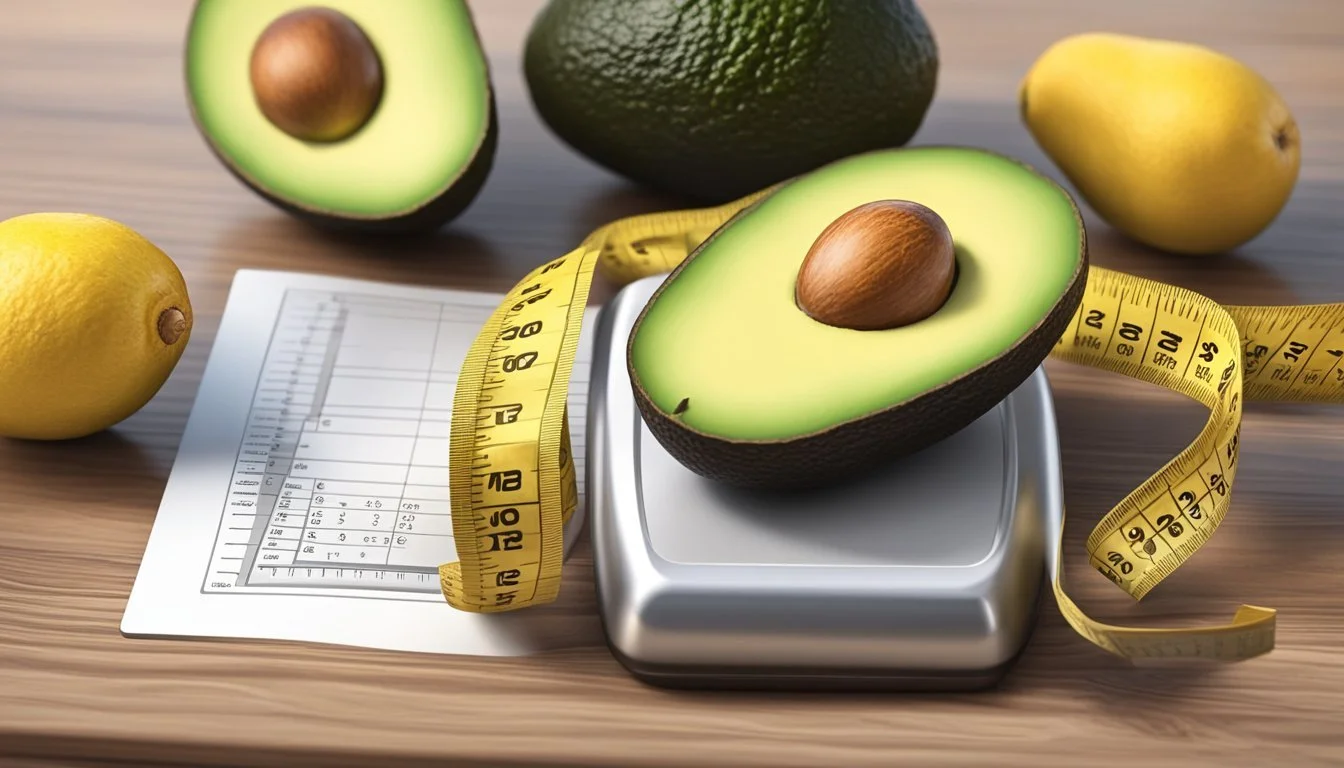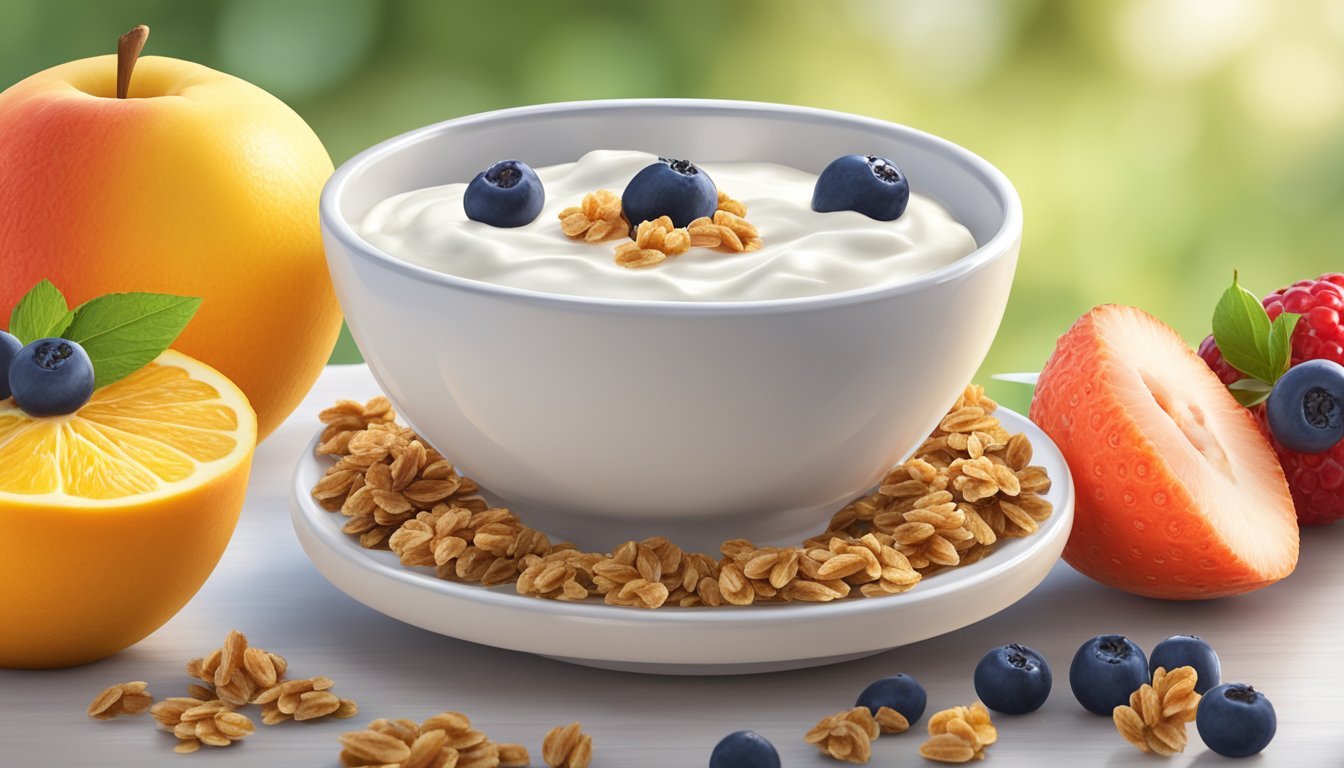Nutrient-Dense Foods to Support Healthy Weight Gain
Gaining weight can be as challenging as losing it, requiring a thoughtful approach to diet and nutrition. Many individuals struggle with this issue, often due to high metabolism, dietary restrictions, or certain medical conditions. Finding the right foods that promote healthy weight gain is crucial.
Certain foods can help individuals increase their caloric intake without compromising their health. Incorporating nutrient-dense foods into daily meals can ensure one gains weight in a balanced and sustainable way. This article will explore various food choices and dietary strategies to support effective and healthy weight gain.
1) Avocado
Avocados are a nutrient-rich fruit popular for promoting healthy weight gain. One whole Hass avocado contains around 240 calories, making it an energy-dense choice. It provides 24 grams of fat, mainly as heart-healthy monounsaturated fats.
This fruit also delivers 12 grams of carbohydrates and 9 grams of fiber. The natural fats and calories make it an excellent option for those looking to add weight in a healthy manner.
In addition to calories and fats, avocados offer a variety of vitamins and minerals. They are a good source of potassium, which supports muscle function and overall cellular activity.
Avocados can be easily incorporated into various meals. They can be added to smoothies, used as a spread on toast, or mixed into salads and other dishes.
2) Peanut Butter
Peanut butter is a popular choice for those looking to gain weight in a nutritious way. It is high in calories, with approximately 200 calories per 2-tablespoon serving.
The calorie-dense nature of peanut butter can aid in increasing daily caloric intake without consuming large volumes of food. This makes it convenient for those who struggle with eating enough.
In addition to calories, peanut butter offers healthy fats, proteins, and essential vitamins and minerals. These nutrients support overall health and can be part of a balanced diet.
Incorporating peanut butter into meals and snacks is easy. It can be spread on toast, blended into smoothies, or added to oatmeal. These additions can increase the caloric content of meals effortlessly.
For weight gain, it is beneficial to consume peanut butter alongside other nutrient-rich foods. Combining it with fruits, whole grains, or dairy products can create balanced, calorie-dense meals.
Adding peanut butter to two daily meals and one snack can contribute significantly to daily caloric intake. This strategy can support steady and healthy weight gain.
3) Cheddar Cheese
Cheddar cheese can be an effective food for weight gain due to its high-calorie content and nutritional profile. It provides a significant amount of energy, with about 403 calories per 100 grams. This makes it a dense source of calories, which is useful for those looking to increase their daily intake.
This type of cheese is also rich in calcium, which is essential for bone health. Eating cheddar can help maintain a balanced diet, especially when paired with other nutrient-dense foods. The calcium content supports skeletal strength, an important aspect of overall well-being.
Cheddar cheese can be easily added to various dishes. Its flavor enhances the taste of many meals, from simple sandwiches to elaborate casseroles. Incorporating it into daily meals can provide both calorie and nutrient boosts without much effort.
It's important to consume cheddar cheese in moderation to avoid excessive saturated fat and sodium intake. Balance is key, and cheddar can be part of a healthy weight gain strategy when consumed alongside a varied diet.
4) Whole Milk
Whole milk is a valuable addition to a weight gain diet due to its nutrient content and calorie density.
A single cup (240 ml) of whole milk provides 149 calories. This makes it an efficient option for those looking to increase caloric intake without consuming large volumes of food.
Whole milk is also rich in protein, offering about 8 grams per cup. Protein is essential for muscle growth and repair, making whole milk a useful choice for those aiming to gain muscle mass.
Carbohydrates in whole milk contribute to overall energy levels. Each cup contains around 12 to 15 grams of carbs, which can support daily energy needs and recovery post-exercise.
Incorporating whole milk into daily meals can be simple. It can be consumed on its own, added to smoothies, mixed with oatmeal, or used in cooking. This versatility makes it easy to include in various dishes and snacks.
For a more calorie-dense option, mixing whole milk with dry milk powder can further boost its nutritional value. Combining 4 parts whole milk with 1 part dry milk powder results in a richer, high-calorie beverage.
Whole milk's combination of calories, protein, and carbohydrates makes it an effective food for those looking to gain weight. Including it as part of a balanced diet can support weight gain goals.
5) Quinoa
Quinoa is a versatile and nutritious food that supports weight gain efforts. It is an excellent source of calories, providing 222 calories per cooked cup. This calorie density makes it a beneficial addition to diets aimed at healthy weight gain.
Rich in protein, quinoa offers about 8 grams per cup, helping build muscle mass. It also contains healthy fats and a substantial amount of carbohydrates, contributing to its role as a calorie-dense food.
Quinoa is also high in fiber, with around 5 grams per cup. This nutrient can aid in digestion and improve gut health, making food consumption more efficient. Including quinoa in meals can thus support a balanced approach to weight gain.
One can prepare quinoa energy bars by combining cooked quinoa with nut butter, honey, and a mix of nuts and seeds. Refrigerated until firm, these bars provide a convenient, calorie-dense snack.
Moreover, quinoa is gluten-free, suitable for those with gluten sensitivities. This characteristic makes it a versatile choice for a wide range of dietary preferences and needs.
6) Almonds
Almonds are a nutrient-dense food that can support healthy weight gain. They are rich in calories, healthy fats, and protein, making them an excellent addition to a calorie-dense diet.
A single small handful of raw almonds (about 1/4 cup or 32 grams) provides approximately 170 calories, 6 grams of protein, and 15 grams of fat. The fats in almonds are primarily monounsaturated and polyunsaturated fats, which are considered heart-healthy.
Incorporating almonds into a daily diet can help increase calorie intake without resorting to unhealthy foods. These nuts also contain important nutrients such as vitamin E, magnesium, and fiber, which contribute to overall health.
Almonds can be eaten on their own as a snack or added to various dishes. They can be sprinkled on yogurt, mixed into smoothies, or included in salads for extra crunch. Their versatility makes them easy to integrate into meals and snacks.
7) Salmon
Salmon is a nutritious choice for those looking to gain weight healthily. It is rich in high-quality protein, which is essential for muscle growth and repair. A 3-ounce serving of salmon provides approximately 19 grams of protein.
Salmon is also an excellent source of healthy fats. It contains omega-3 fatty acids, known for their benefits to cardiovascular health. These fats support overall health, making weight gain more balanced.
Additionally, salmon can be versatile in meal preparation. Grill it, bake it, or incorporate it into dishes like salads and pastas. These options offer variety, preventing meal fatigue and encouraging consistent consumption.
8) Sweet Potatoes
Sweet potatoes can be a useful addition to a diet aimed at weight gain. They are calorie-dense and packed with essential nutrients.
They are rich in carbohydrates, which can provide the energy needed for overall growth and muscle building. This makes them a valuable food option for those looking to increase their calorie intake.
Sweet potatoes contain a variety of vitamins and minerals such as beta carotene, potassium, and vitamin C. These nutrients support overall health, which is important when increasing caloric intake.
Incorporating sweet potatoes into meals can be done in various ways, such as baking, boiling, or mashing them. Adding butter, cheese, or other calorie-dense toppings can further enhance their caloric content.
Their natural sweetness can also make them a versatile ingredient for both savory and sweet dishes, appealing to a broad range of tastes.
9) Greek Yogurt
Greek yogurt is a beneficial option for those looking to gain weight. It is packed with high-quality protein, which is essential for muscle growth and repair. This makes it a valuable addition to a weight gain diet.
In addition to protein, Greek yogurt contains calcium and probiotics. Calcium supports bone health, which is crucial for overall body strength, especially when gaining weight. Probiotics help maintain a healthy digestive system, assisting in nutrient absorption.
Versatility is another advantage of Greek yogurt. It can be added to smoothies, oatmeal, or consumed as a snack with fruits and nuts. This flexibility makes it easy to incorporate into various meals throughout the day.
For those looking to increase calorie intake, Greek yogurt can be combined with calorie-dense foods. Mixing it with honey, granola, or dried fruits can enhance its caloric content without compromising its nutritional benefits.
10) Oats
Oats can play a significant role in weight gain due to their high nutritional value and versatility. They are packed with essential nutrients like fiber, protein, and healthy fats, which can aid in gaining weight when consumed in larger portions or with calorie-dense toppings.
Adding rolled or steel-cut oats to a diet provides a solid foundation for calorie intake. They can be prepared with whole milk or yogurt instead of water for an added calorie boost.
Toppings such as nuts, seeds, dried fruits, and honey contribute extra calories and nutrients, transforming a simple bowl of oats into a nutrient-dense meal. Mixing in protein powder can further enhance the protein content, making oats a balanced choice for those looking to gain weight.
Savory preparations of oats also work well. Cooking oats with spices like turmeric and garam masala, and adding vegetables like carrots and peas, can create a delicious and calorie-rich dish. This approach not only increases the calorie count but also provides varied flavors to keep meals interesting.
Understanding Weight Gain
Gaining weight effectively involves understanding both the science behind it and the various factors that influence this process. A well-structured diet focusing on nutrient-dense and calorie-rich foods is crucial.
The Science Behind Weight Gain
Weight gain occurs when the body takes in more calories than it burns. This caloric surplus results in the storage of excess energy in the form of fat and muscle tissue. Metabolism, the rate at which the body burns calories, plays a significant role in how quickly weight can be gained.
Macronutrients—carbohydrates, proteins, and fats—are essential. Carbohydrates provide energy, proteins help build muscle, and fats are a dense source of calories. Hormones, such as insulin and cortisol, also affect weight gain by regulating metabolism and fat storage.
Increasing muscle mass through resistance training can further enhance weight gain. Muscles are denser than fat and require more calories to maintain, leading to a higher calorie intake which is essential for consistent weight gain.
Factors Affecting Weight Gain
Diet: The composition and quantity of the diet are crucial. Foods rich in healthy fats, proteins, and carbohydrates, such as nuts, seeds, dairy products, and legumes, can help increase caloric intake.
Genetics: Some individuals have a naturally higher metabolic rate, making it harder for them to gain weight. Genetics can influence how the body stores fat and muscle.
Physical Activity: Engaging in resistance training or weightlifting can promote muscle gain. However, excessive aerobic activity may increase calorie burning, making it essential to balance exercise with caloric intake.
Lifestyle and Health: Chronic stress or underlying health conditions can impact weight gain. Stress can increase cortisol levels, affecting appetite and metabolism. Sleep, hydration, and overall lifestyle choices also play significant roles.
Understanding how these factors interplay can effectively guide individuals in crafting a tailored plan to achieve their weight gain goals.
Nutritional Guidance for Weight Gain
When aiming to gain weight, focusing on the right nutrients and incorporating energy-dense foods can make a significant difference.
Macronutrients for Weight Gain
Proteins are essential as they help in building and repairing muscle. Foods like lean meats, eggs, dairy, and legumes are excellent sources. Aim to consume at least 1.2 to 1.6 grams of protein per kilogram of body weight daily.
Carbohydrates provide the necessary energy for physical activities and bodily functions. Opt for whole grains, starchy vegetables, and rice. Aiming for around 45-65% of your daily calories from carbs is beneficial.
Fats are calorie-dense and crucial for weight gain. Include sources like avocados, nuts, seeds, and high-fat dairy. Try to get 20-35% of your daily calories from fats, focusing more on unsaturated fats.
Important Vitamins and Minerals
Vitamin D is vital for bone health and can be found in fortified dairy, fish, and sunlight exposure. Ensuring adequate levels can also support muscle function.
Calcium supports bone strength and is commonly found in dairy products, fortified plant milk, and leafy greens. Adults need about 1,000 milligrams per day.
Iron is crucial for blood production and oxygen transport. Sources include red meat, beans, lentils, and fortified cereals. Women need 18 milligrams per day, while men need 8 milligrams.
Getting a variety of vitamins and minerals ensures overall health support during weight gain.






